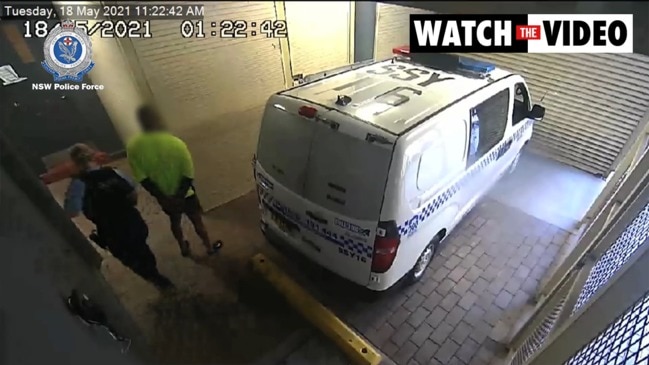The Snitch: Reason behind Jamil Hopoate’s 11th hour bail reprieve
He is facing a cocaine supply charge but former NRL player Jamil Hopoate got bail after the prosecution withdrew its opposition. So why did that happen?

Police & Courts
Don't miss out on the headlines from Police & Courts. Followed categories will be added to My News.
Ex-NRL player Jamil Hopoate got bail on an 8kg cocaine supply charge after the prosecution withdrew its opposition at the 11th hour.
This was after arguing strongly for Hopoate to be denied bail.
So why did that happen?
As usual, the DPP is as forthcoming with info as a moody teenager. So we are left to theorise.
Smarter brains than ours tell us that the charge Hoppa is facing – supplying not less than a commercial quantity of a border controlled drug – requires him to have possessed at least some of the actual drug, or the prosecution to have evidence that he was planning to do so.
Given police allege they replaced the 514kg cocaine shipment with “an inert substance” and Hopoate is accused of picking up 8kg of it – and it was not actual cocaine – this seems like it might be a problem for the strength of the case.

It goes along with what Hopoate’s barrister Greg James QC argued in front of Justice Elizabeth Fullerton and what the ex-NRL star’s solicitor Mahmoud Abbas said outside of court.
“Our argument is that the crown has to prove that Mr Hopoate had knowledge of the contents of what was in the truck and there has to be an actual drug in the truck,” Mr Abbas said.
“Given that we are dealing with a bag of an inert substance, and not cocaine, those two elements do not exist.”
Stay tuned for possible evasive action.
STUPIDITY TRUMPS TECH
Encrypted Cipher phones that police can’t tap are a must-have tool for the modern criminal.
But there is one variable in the equation that is giving the police an advantage – heaps of crooks are really, really stupid.
A short lesson for the uninitiated. Cipher phones use an app to heavily encrypt message so police can’t monitor them.
They are also subscribed to under a username or alias, so police can’t tell who is using them.
So the crooks can send messages to each other arranging criminal behaviour with a decent level of impunity.
Occasionally the cops get hold of the messages sent from a Cipher phone – like if they are sent to a victim threatening to kill them or kidnap them or similar. But unless the police can identify who is using the phone and sending the messages, it’s almost useless for them.
It appears the only thing the cops can do is use phone tower data to monitor the locations where the Cipher phones are travelling.
That’s where our dumb crooks come into play.
We have seen several cases where the crook has had their Cipher phone in one pocket and their legitimate phone – that is registered in their own name – in the other pocket.
So all the police have to do is establish that the crook is the user of the legitimate phone by obtaining the records from the phone company.
Then they analyse the phone tower data to watch the movements of the legitimate phone. And if the encrypted Cipher phone is always in the same place, then voila, they have their crook.
COPS’ OTHER TOP JOB
One of the most coveted squads in the police is now up for grabs thanks to a top-heavy reshuffle.
In an email to the troops on Friday, Assistant Commissioner Stuart Smith announced Criminal Groups Squad commander Detective Superintendent Rob Critchlow would be moving to the Organised Crime Squad.
Detective Superintendent Marty Fileman would be moving from Organised Crime Squad to head up the Eastern Suburbs Local Area Command, which has been a revolving door of late for relieving commanders.
Critchlow’s job, essentially keeping the bikies and gangsters of NSW in check, will be up for grabs from July 6. Any takers?
Got a Snitch? Contact ava.benny-morrison@news.com.au or brenden.hills@news.com.au




